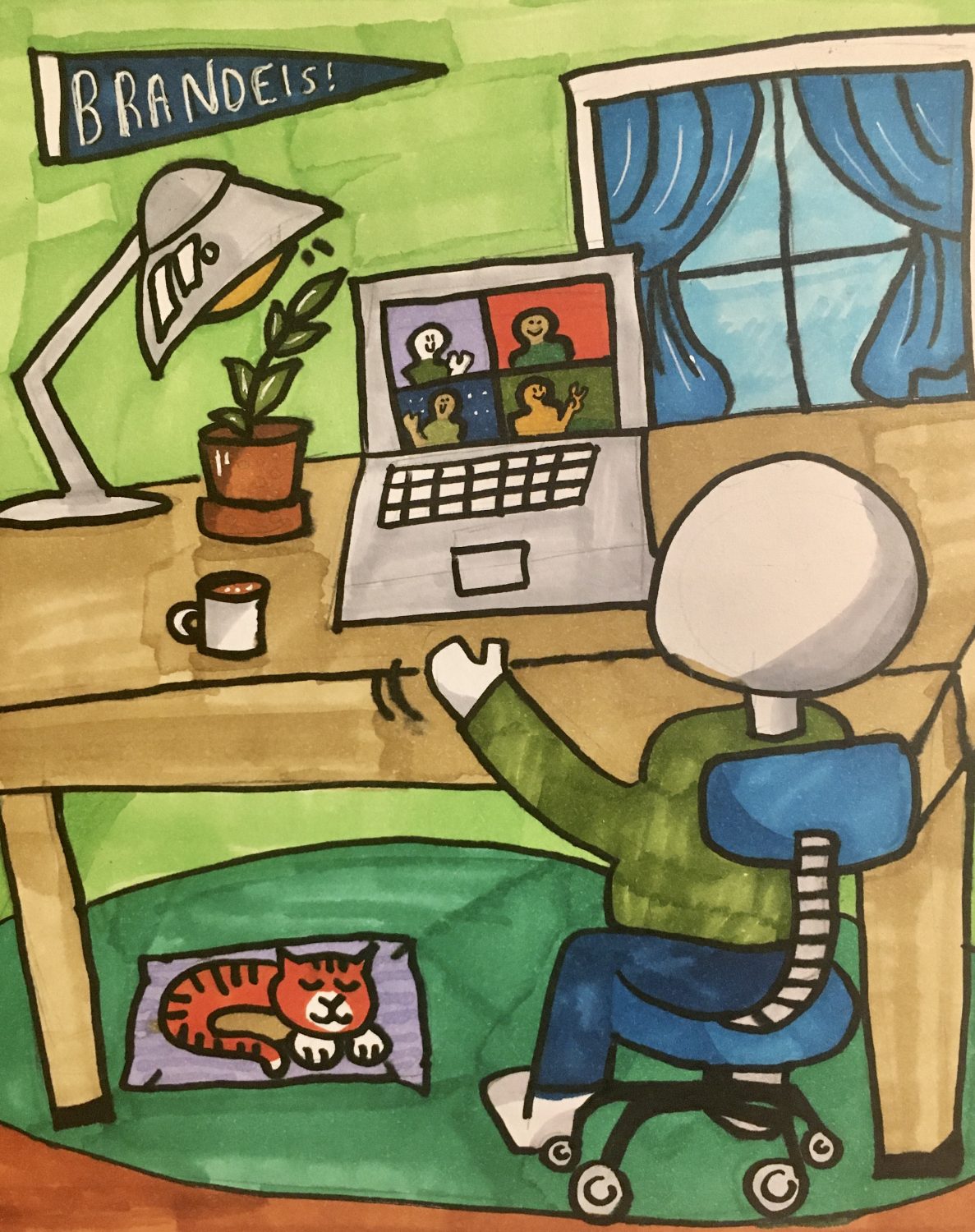Due to the pandemic restricting people to their homes, especially during lockdowns and quarantines, remote options have become commonplace in the workplace and academic settings. At the start of the quarantine in 2020, both my younger brother and I were switched onto Zoom classes for the duration of our semesters. I personally felt as if online classes, along with the general fear of the early pandemic, led me to being highly uninterested in my courses. It was increasingly difficult to pay attention to the class material, and I felt very removed from the professor and their lessons.
Going into the fall semester of 2020, where classes were to be in a hybrid format of both online and in-person classes, I similarly felt that being online made me less involved than I have ever been in a class. Not only was it simply just difficult paying attention to material when I was in the comfort of my own room, but it also felt as if the lessons professors were giving could have just been a PowerPoint emailed to us. In my opinion, Zoom lessons felt like a waste of time where I just had to be present for participation but would read slides and obligatory readings to complete assignments. Consequently, when classes began being more in-person to now, in France, where it is fully in person, I have felt my alertness in class and productivity become a lot higher than normal. Being able to designate a specific time of day to just learning and academics is important to me in order to be efficient with my time and actually grasp the material. Having a classroom setting with more engagement in participation, presentation and group work makes me feel as if I actually am improving in my learning and actively applying it.
Consequently, hearing that New York City high school students had recently walked out of school in protest of overly lax coronavirus rules seemed odd, for I questioned why students would want a regression into more restriction. I would think that not only was online learning nearly futile for me but that I would also want more of a reason to not be so confined to home and surrounded more with my friends. These students claim the overly lax COVID-19 guidelines indicate the school’s and the DOE’s lack of care for student safety or wellbeing. In talking with my high school-aged brother, it seems as if COVID-19 cases have been reported at high rates on nearly a weekly basis for quite some time, sponsoring a general fear of contracting COVID-19 at school. Ultimately, I would agree that if I were confined to my overpopulated high school where COVID-19 cases were constantly being reported, I, too, would view the overall school as being largely unsafe.
What this signals to me is either a need for remote classes to be obligatory for these city high schools or a tremendous effort on part of the DOE to start implicating real COVID-19 measures to curb the current surge. Such measures could be rearranging school start times for different students, rearranging class times, working to reduce the number of students in a class and providing COVID-19 tests for students on a biweekly basis. This, evidently, will cost the DOE money and may potentially be the reason why such COVID-19 guidelines have been so lax up until this point. Therefore, providing a remote option is crucial to honoring the public safety of these students, and academic amnesty must simultaneously be administered. If the levels of academic retention are different between online and in-person classes, students should not have to be subjected to fault beyond their control. While we are all experiencing this pandemic, there are certain populations that are being impacted in dramatic ways at extremely foundational ages; providing remote options to protect public safety, and ensuring academic amnesty along with increased effort to better lessons, is the only way we can ensure we are not damning an entire generation for our own incapabilities in curbing this pandemic.

Illustration by Lauren Podhorzer


